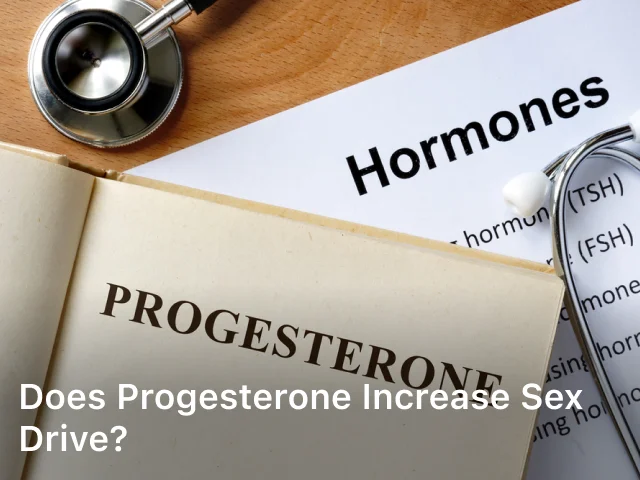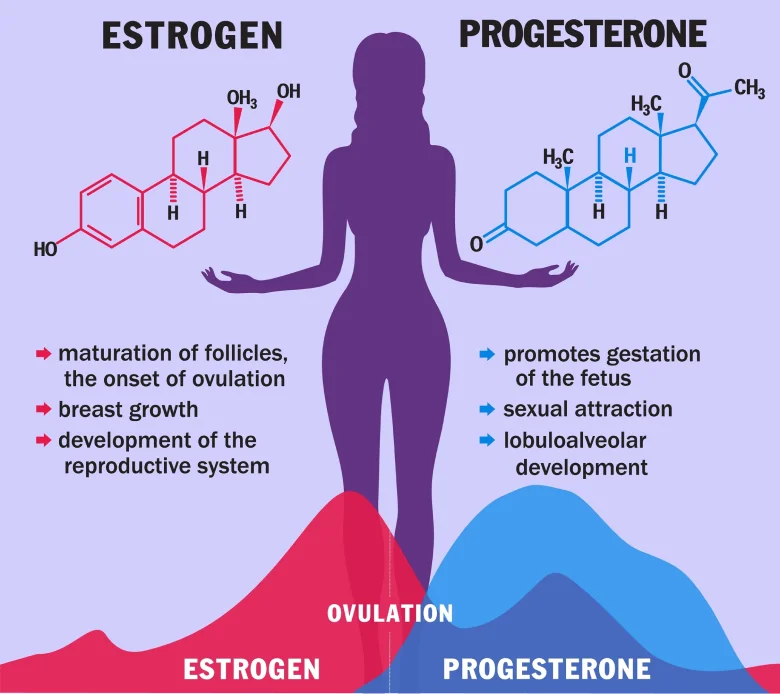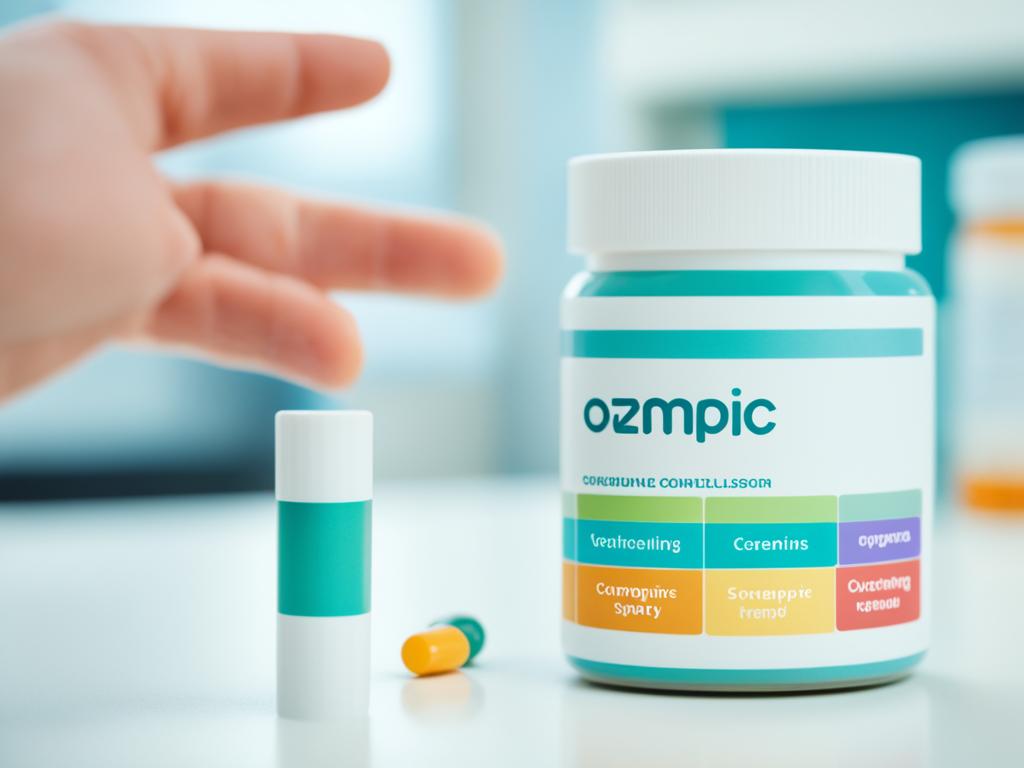Does Progesterone Increase Sex Drive?

Does Progesterone Increase Sex Drive? Unveiling the Surprising Connection Between Progesterone and Your Libido. Discover the Hormones Behind a Heightened Sex Drive.
Welcome to a deep dive into the intriguing question: “Does Progesterone Increase Sex Drive?” In this informative article, we will explore the intricate connection between Progesterone and your libido.
Progesterone is a hormone with a range of functions in the human body, and its role in sexual desire is a topic of great interest. We’ll uncover the facts, debunk myths, and provide you with a clear understanding of this complex relationship.
Does Progesterone Increase Sex Drive?
In the realm of hormones, progesterone often takes a backseat to its more famous counterparts like estrogen and testosterone. However, recent research has shed light on an intriguing question: Does progesterone increase sex drive? To unravel this mystery, we’ll embark on a journey through the world of hormones, exploring their intricate dance and how they impact our desires and libido.
What is Progesterone?
Before we delve into the link between progesterone and sex drive, let’s first understand what progesterone is. Progesterone is a naturally occurring hormone in the human body, primarily produced by the ovaries in females and the testes in males.
It plays a pivotal role in regulating the menstrual cycle, preparing the uterus for pregnancy, and maintaining a healthy pregnancy if conception occurs.

Does Progesterone Affect Sex Drive?
Now, the million-dollar question: does progesterone affect sex drive? To answer this, we must consider the complex interplay of hormones in our bodies. Sex drive is a multifaceted phenomenon influenced by various hormones, including testosterone, estrogen, and yes, progesterone.
Research suggests that progesterone may indeed have a role in modulating sex drive, but the relationship is far from straightforward. Progesterone’s effects on libido can vary depending on its levels in the body and the individual’s overall hormonal balance.
Does Progesterone Increase Horniness?
The concept of “horniness” or sexual desire is closely related to sex drive. While progesterone may not be the primary driver of horniness, it can indirectly influence it. Progesterone levels fluctuate throughout a woman’s menstrual cycle, peaking after ovulation. Some women report feeling more sexually aroused during this phase, which aligns with elevated progesterone levels.
However, it’s important to note that individual experiences can vary significantly. Some may not notice a significant change in their horniness during the progesterone-dominant phase of their cycle.
Which Hormone Increases Sex Drive in Females?
While progesterone does play a role in the complex hormonal orchestra of sex drive, it’s essential to recognize that estrogen and testosterone are the primary hormones responsible for regulating sexual desire in females.
Estrogen, predominantly produced during the follicular phase of the menstrual cycle, enhances sensitivity to sexual stimuli and can increase sexual desire. Testosterone, though often associated with males, is also present in females and contributes to libido and overall sexual well-being.
What Hormone Promotes Sex Drive?
If you’re searching for the ultimate hormone responsible for promoting sex drive, it’s a combination of estrogen, testosterone, and even serotonin. These hormones work in tandem to arouse sexual desire, increase pleasure, and foster emotional connections that enhance intimacy.
Now that we’ve covered the basics let’s address some frequently asked questions (FAQs) related to progesterone and sex drive.
What is Progesterone Responsible For
Progesterone is responsible for several important functions in the human body, particularly in females. Here are its primary responsibilities:
- Regulating the Menstrual Cycle: Progesterone is a key player in the menstrual cycle. After ovulation, the corpus luteum, a temporary endocrine structure formed in the ovaries, releases progesterone. This hormone helps prepare the uterine lining (endometrium) for possible pregnancy by making it more receptive to a fertilized egg.
- Maintaining Pregnancy: If fertilization occurs and a woman becomes pregnant, the corpus luteum continues to produce progesterone during the early stages of pregnancy. This hormone supports the uterine lining and prevents it from shedding, which is essential for maintaining the pregnancy until the placenta takes over hormone production.
- Thickening Cervical Mucus: Progesterone thickens cervical mucus, making it less permeable to sperm. This change in cervical mucus helps prevent sperm from reaching the egg and fertilizing it, acting as a natural contraceptive during certain phases of the menstrual cycle.
- Supporting Pregnancy Hormones: Progesterone works in conjunction with other hormones like estrogen to create a balanced hormonal environment during pregnancy. It helps prevent uterine contractions that could lead to preterm labor and promotes the growth of blood vessels in the uterine lining to ensure proper nourishment for the developing fetus.
- Breast Development: Progesterone is involved in the development of the mammary glands in preparation for breastfeeding. It works alongside other hormones to promote the growth and branching of milk ducts in the breasts.
- Mood and Emotional Well-Being: Some research suggests that progesterone can have an impact on mood and emotional well-being. Fluctuations in progesterone levels during the menstrual cycle may contribute to mood changes and, in some cases, symptoms of premenstrual syndrome (PMS).
- Bone Health: Progesterone also plays a role in maintaining bone density. It helps regulate the balance between bone formation and resorption, which is essential for overall bone health.
In summary, progesterone is a crucial hormone in the female reproductive system, primarily responsible for regulating the menstrual cycle, supporting pregnancy, influencing cervical mucus consistency for contraception, and contributing to various aspects of reproductive and overall health.
what is progesterone used for
Progesterone is used for a variety of medical and therapeutic purposes, both in its natural form and as a synthetic hormone. Here are some of the common uses of progesterone:
Hormone Replacement Therapy (HRT)
Progesterone is often included in hormone replacement therapy for menopausal women. When combined with estrogen, it can help alleviate menopausal symptoms like hot flashes, night sweats, and mood swings. It is particularly important for women who still have their uterus, as estrogen therapy alone can increase the risk of uterine cancer without the balancing effects of progesterone.
Fertility Treatments
Progesterone is sometimes prescribed to women undergoing fertility treatments, such as in vitro fertilization (IVF) or intrauterine insemination (IUI). It can support early pregnancy by preparing the uterine lining for implantation and preventing premature uterine contractions.
Preventing Miscarriage
In cases where women have a history of recurrent miscarriages or a suspected luteal phase defect (a condition where the body doesn’t produce enough progesterone), progesterone supplementation may be recommended during the early stages of pregnancy to help maintain the pregnancy.
Birth Control
Progesterone-only birth control methods, such as the progestin-only pill (mini-pill), hormonal intrauterine devices (IUDs), and contraceptive injections, use synthetic forms of progesterone to prevent pregnancy. These methods primarily work by thickening cervical mucus, making it difficult for sperm to reach the egg, and altering the uterine lining to inhibit implantation.
Managing Irregular Menstrual Cycles
Progesterone can be prescribed to regulate irregular menstrual cycles. It is often used in cases of amenorrhea (absence of menstruation) or oligomenorrhea (infrequent menstruation) due to hormonal imbalances.
Treating Endometrial Conditions
Progesterone therapy is sometimes used to treat certain endometrial conditions, such as endometriosis and uterine fibroids. It can help alleviate symptoms and control abnormal uterine bleeding associated with these conditions.
Supporting Breastfeeding
Progesterone plays a role in mammary gland development and milk production. Some lactating women may be prescribed progesterone to support breastfeeding if there are concerns about milk supply.
Bone Health
In some cases, progesterone therapy may be used to help maintain or improve bone density, especially in postmenopausal women at risk of osteoporosis.
It’s important to note that the use of progesterone should always be under the guidance and supervision of a healthcare provider. The specific form (natural or synthetic) and dosage of progesterone can vary depending on the individual’s medical condition and treatment goals. Additionally, progesterone should not be used without a medical need, as it can have potential side effects and interactions with other medications.
FAQs
Q1: Can Low Progesterone Levels Lead to a Decreased Sex Drive?
A: Yes, low progesterone levels, especially when combined with imbalances in other hormones, can potentially lead to a decreased sex drive. Hormonal imbalances can disrupt the intricate system that regulates sexual desire.
Q2: Can High Progesterone Levels Enhance Sex Drive?
A: While high progesterone levels may coincide with increased horniness for some individuals during their menstrual cycle, it’s not the sole factor. Other hormones like estrogen and testosterone also play significant roles in promoting sex drive.
Q3: How Can I Maintain a Healthy Hormonal Balance for a Strong Sex Drive?
A: Maintaining a healthy lifestyle that includes regular exercise, a balanced diet, adequate sleep, and stress management can help support a healthy hormonal balance, which in turn can contribute to a robust sex drive.
Q4: Are There Medical Interventions to Boost Sex Drive via Hormone Regulation?
A: In some cases, healthcare providers may recommend hormone therapy to address specific hormonal imbalances that are affecting a person’s sex drive. However, these interventions should always be discussed with a healthcare professional and considered carefully.
Q5: Is It Normal for Sex Drive to Fluctuate?
A: Yes, it’s entirely normal for sex drive to fluctuate due to a variety of factors, including stress, relationship dynamics, age, and hormonal changes. Understanding these fluctuations and addressing underlying issues can help maintain a satisfying sex life.
In conclusion, the question, “Does progesterone increase sex drive?” is part of a more comprehensive discussion about hormones and their intricate role in human sexuality. While progesterone does have a role to play, it’s just one piece of the puzzle. Understanding the dynamic interplay between various hormones can help individuals navigate their own sexual experiences and seek appropriate guidance when needed.
Keep Reading :





